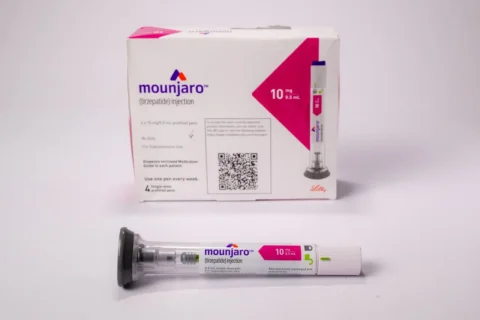The weeks and months after childbirth can feel like a whirlwind. Between sleepless nights, caring for your baby, and navigating new routines, it’s easy to feel pressure about “bouncing back” to your pre-pregnancy body. Society often pushes the idea that weight loss after childbirth should be quick and effortless—but is that realistic or even healthy?
In reality, postpartum weight loss looks different for every woman, and the journey to feeling strong and confident again isn’t about following unrealistic timelines. Let’s debunk some of the most common postpartum weight loss myths and focus on what truly matters: recovery, health, and self-compassion.
Myth #1: You Should Lose All the Baby Weight Within Six Weeks
The Truth: Recovery Takes Time
The six-week postpartum checkup is often seen as a milestone, but it’s not a finish line. Your body spent months growing and nurturing a new life, and it deserves the same patience and care as it heals.
- What’s Normal?: Most women lose about 10–15 pounds immediately after giving birth (baby, placenta, and fluid weight), but additional weight loss happens gradually. It can take months or even years to lose the remaining baby weight.
- Focus on Recovery: Instead of aiming for rapid weight loss, prioritize rebuilding strength, healing, and adjusting to motherhood.
Myth #2: Breastfeeding Alone Will Melt Away the Pounds
The Truth: Breastfeeding Helps, But It’s Not Magic
While breastfeeding does burn calories (an estimated 500 extra calories per day), it doesn’t guarantee weight loss for every mom. Hormonal changes can also increase appetite or cause your body to hold onto fat as an energy reserve.
- What to Expect: Some women lose weight while breastfeeding, while others find it harder to shed pounds until after they wean. Both are normal.
- Focus on Nutrition: Regardless of weight changes, eat nutrient-rich foods to fuel your body and your baby.
Myth #3: You Should Avoid Carbs to Lose Weight Faster
The Truth: Carbs Are Essential for Energy
Low-carb diets may be trendy, but cutting carbs postpartum can backfire. Your body needs carbohydrates to support energy levels, especially if you are breastfeeding or recovering from a C-section.
- Healthy Choices: Focus on complex carbs like whole grains, fruits, and vegetables rather than refined sugars or processed snacks.
- Balance Is Key: Pair carbs with protein and healthy fats to keep you full and energized throughout the day.
Myth #4: Exercise Is All You Need to Get Your Body Back
The Truth: Exercise Is Part of the Equation, Not the Whole Solution
While regular physical activity is important for overall health, it’s not a magic solution for postpartum weight loss. In fact, jumping back into high-intensity workouts too soon can cause injury or delay recovery.
- Start Slow: Begin with gentle movements like walking, stretching, or postpartum yoga. If you had complications during delivery, consult your doctor before starting any exercise.
- Targeted Exercises: Focus on strengthening your core and pelvic floor to rebuild stability and support after pregnancy.
Myth #5: You Should Compare Yourself to Celebrities or Influencers
The Truth: Every Body Is Unique
Social media is full of images of new moms flaunting flat stomachs just weeks after giving birth.
These photos don’t tell the full story—they often involve personal trainers, strict diets, or even photo editing.
- Your Journey Is Your Own: Comparing yourself to others creates unnecessary pressure. Instead, celebrate your own progress and achievements, no matter how small.
- Be Kind to Yourself: Your body accomplished something incredible—focus on gratitude and self-care rather than perfection.
Realistic Postpartum Weight Loss Goals
- Weeks 1–6: Focus on healing, bonding with your baby, and establishing routines. Weight loss during this time is typically minimal.
- Months 2–6: Gradual weight loss of 1–2 pounds per week is considered safe and healthy.
- Beyond 6 Months: Long-term lifestyle changes, like balanced eating and regular activity, will support sustainable weight loss over time.
QuickMD Can Help Support Postpartum Weight Loss
Postpartum recovery is about more than just weight loss—it’s about taking care of your overall health. If you’re struggling to manage postpartum weight or need guidance, QuickMD can connect you with licensed providers specializing in weight-loss support.
- Compounded Medications: Explore affordable options like compounded semaglutide to aid weight loss.
- Same-Day Consultations: Meet with a provider online and create a plan tailored to your needs.
- Convenient Prescriptions: Medications can be shipped directly to your door for maximum ease.
FAQs About Postpartum Weight Loss
How soon can I start losing weight after giving birth?
Weight loss happens gradually. Focus on recovery during the first 6 weeks, and discuss safe strategies with your doctor before starting a weight-loss plan.
Is it safe to diet while breastfeeding?
Extreme dieting is not recommended while breastfeeding. Instead, focus on nutrient-rich foods and moderate calorie intake to support both you and your baby.
Can medications like semaglutide help with postpartum weight loss?
Medications like semaglutide may be an option for some moms after they’ve recovered and consulted with a provider.
How do hormones affect postpartum weight loss?
Postpartum hormones like prolactin and cortisol can influence appetite, fat storage, and energy levels, making weight loss unpredictable for some women.
What should I do if I’m not losing weight postpartum?
If you’re struggling, consult a healthcare provider to rule out underlying issues like thyroid imbalances or hormonal changes.
Postpartum Weight Loss: The Bottom Line
Postpartum weight loss isn’t about achieving a quick fix or meeting unrealistic expectations. It’s about giving your body the time and care it needs to heal while making gradual, sustainable changes.
Schedule a consultation with QuickMD today to explore how personalized guidance can support your postpartum journey. Remember, you’re not just recovering—you’re thriving.




